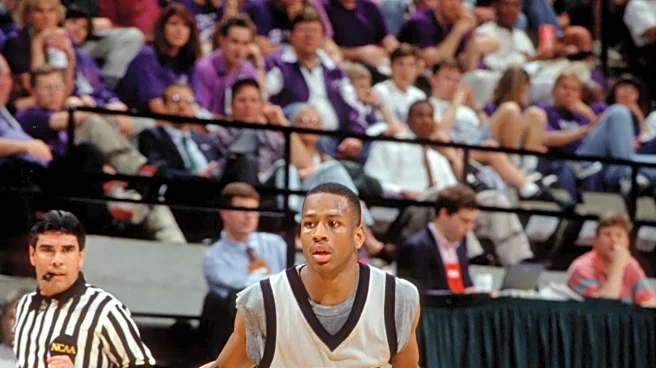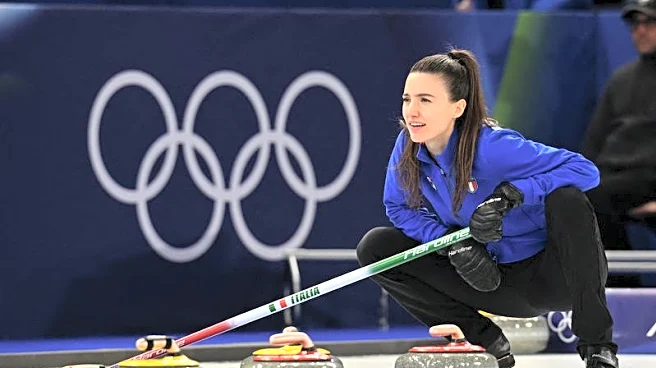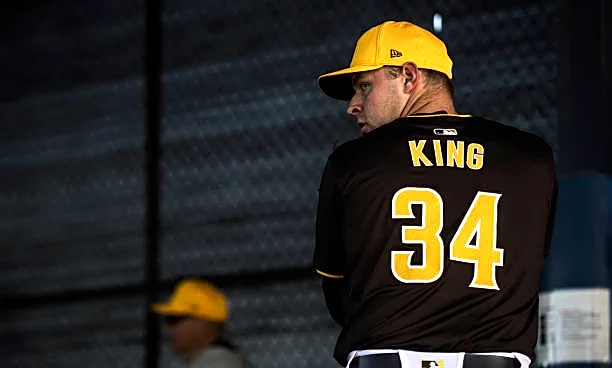Some inspiring news for your Georgetown Hoyas arrived in the form of a recent, in-depth interview with the one and only Allen Iverson. Currently on tour promoting his memoir “Misunderstood” and an Amazon
Prime documentary series “ALLEN IV3RSON,” Bubba Chuck has been making stops on radio, TV, and podcasts.
The legendary guard, whose electricity on the court for Georgetown is a cherished memory for all who watched him, shared many profound thoughts on his life, legacy, and the pivotal moments that shaped him—including his time on the Hilltop under the guidance of Coach John Thompson Jr. Hoyas fans have heard Iverson speak on Coach Thompson’s impact before, and his words continue to resonate. Here are twelve powerful quotes from the interview that offer a deeper look into the mind of a Hoya icon.
1. On Authenticity in Interviews
“I think the most important thing for me to do is my what I think about when I’m talking to my fans or when I’m talking to people in general that don’t know me from nothing but sound bites and stuff like that… It’s so many emotions and and and small sound bites. They don’t never really hear you talk about who you are and and and how you feel.” [0:16]
Iverson speaks to the importance of using his platform to share his true self, highlighting how brief sound bites or post-loss interviews often misrepresent an athlete’s full personality.
2. The “Practice” Rant Revisited
“That was supposed to been a happy moment for me… I was ecstatic going to the arena. You know what I mean? Like, I’m getting ready, right? And then they turned it into something else.” [2:58]
Iverson explains the emotional context behind his famous “practice” rant, revealing it stemmed from intense personal stress over trade rumors and the impact on his family, rather than a disinterest in practice itself.
3. On Coach Thompson and Moving Forward
“And even when I went to Georgetown, Coach Thompson used to tell me or used to tell reporters that not one time did he ever ever talk about the incident and felt like he was a victim, all he ever thought about was now that he has another opportunity to make the best out of it.” [25:05]
This is a powerful testament to the mindset Coach Thompson instilled in his players. Iverson credits his coach with teaching him to leave the past behind and focus on the immense opportunity in front of him, a lesson that undoubtedly shaped his career.
4. On Coach Thompson’s Unique Wisdom
“Coach Thompson was like the first person that I ever been around that had that type of success and could understand what I was going through and where I was trying to go. He used to always tell me, ‘You always listening to somebody that don’t know what they’re talking about.’ You know what I mean? How can they tell you how to get from A to Z and they ain’t never been there?” [39:10]
For many of the Georgetown faithful, this quote captures the essence of Coach Thompson’s role as more than a coach—he was a mentor with the life experience to offer credible guidance. Iverson acknowledges that Thompson was the first person in his life who had walked the path he was on.

5. Living a Life of “Live, Laugh, Love”
“I wake up with the same agenda every day, which is live, laugh, love.” [5:13]
Now at 50 years old, Iverson embraces a daily philosophy centered on appreciating life’s blessings, emphasizing family, friends, and the beautiful things the world offers.
6. Maturation and Change
“I can feel it now. I can [] feel the pendulum swinging. You know what I mean? I can feel the the change… it’s not that for me no more. And then when it was [] it really didn’t mean nothing.” [7:46]
Iverson speaks on his personal growth, acknowledging a shift in priorities and a newfound sense of maturity, particularly regarding past habits he once enjoyed.
7. No Regrets, Just Growth
“I don’t have no regrets… I wouldn’t change anything… because look how many people that I’m going to help by being me.” [21:14]
Iverson states he has no regrets, believing that his journey and experiences, including past mistakes, have shaped him into a person who can now help others.
8. The Pain of Misunderstanding
“I would say the calling me a thug when I know I’m not… I think judging me off of a look… that was one of the the toughest things I really had to deal with cuz when I came in the league, I was 21 years old.” [13:19]
Iverson candidly discusses the pain of being labeled and judged based on his appearance, emphasizing that his style was a reflection of his background and identity, not an indicator of his character.
9. Embracing NIL for Athletes
“I love it… The best feeling in the world. You know what I mean? Because I was them. I was there. I was the guy that felt bad that when we were the house that I left had the sewer and the water in the house was up about this high… So when I see everything that’s going on with the NIL… it makes my heart feel so good.” [1:37:42]
Iverson expresses immense joy and support for Name, Image, and Likeness (NIL) deals for college athletes, drawing on his personal experience of poverty to highlight the positive impact it can have.
10. The Greatest Compliment
“And the greatest compliment that I’ve ever had as a as a player in the NBA was they felt like the guy 6 feet tall, 165 lbs, if we had him that we could beat anybody. And that was the best compliment in the world for me.” [20:35]
Iverson recounts what he considers the ultimate compliment: the belief that his presence alone, despite his smaller stature, could elevate any team to victory.
11. Playing Every Game Like It’s the Last
“Someone that played every game like it was his last. That’s it. When… my high school coach told me that you play every game like it’s your last cuz you never know when it is. And that actually came true.” [1:02:10]
Iverson shares his desire to be remembered as a player who gave his all in every game, a philosophy that became a guiding principle throughout his career.
12. Loyalty to Friends and Family
“I love who I love and I appreciate them. I appreciate the people that I love. I’m loyal to the people that’s loyal to me. I’m loyal to my fans, and the majority of them are loyal to me.” [33:59]
Iverson emphasizes his deep-seated loyalty to his friends, family, and fans, acknowledging the reciprocal nature of respect and support.
This interview offers a look into the mind of a legend, showcasing his growth, loyalty, and dedication to inspiring others. The lessons learned on the Hilltop from Coach Thompson clearly remain a bedrock of his character.
And in a final piece of Hoya trivia, Iverson confirmed (1:36) he learned his world-famous crossover from a Georgetown walk-on, Dean Barry, proving that inspiration can truly come from anywhere.










